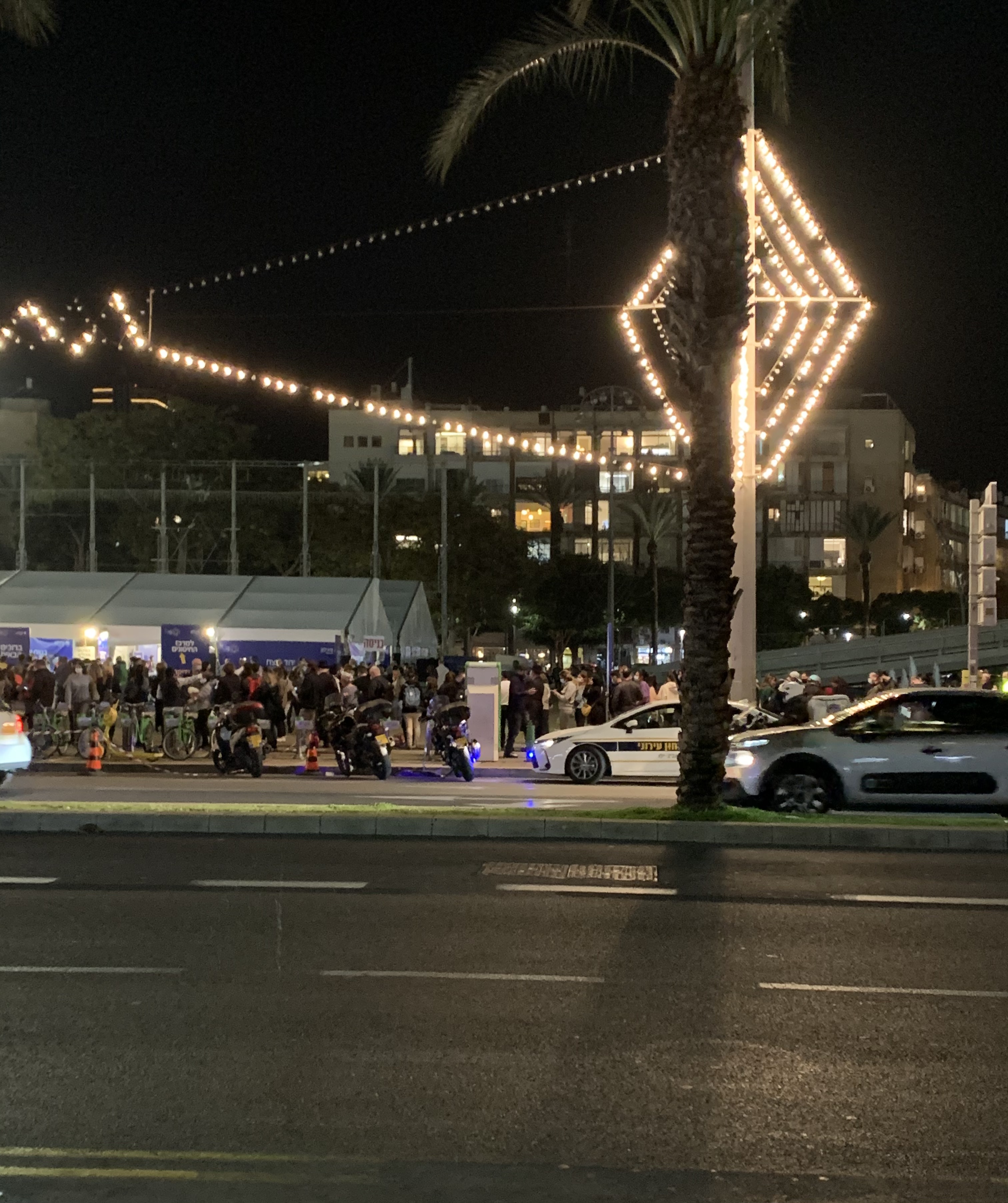Featured Refresh
Text & Image
How is the coronavirus pandemic affecting your life right now? Tell us about your experiences, feelings, and thoughts.
The pandemic is hitting records in Israel, but the vaccination rates too. Not far from our apartment, in Rabin square, there is a huge vaccination tent, one of many vaccination centers across Tel Aviv. All of our relatives and friends that are over 60, including all of our 6 (yes!) grandparents, received the vaccine shots, as well as some of our younger friends (doctors, social workers, teachers). But the vaccination festival will slow down in the next few weeks, since new supply is delaying. Actually the big tent in the square is no longer operating (the picture was taken yesterday) since they ran out of vaccines. As long as the vaccination operation went on, we were hoping to race our way out of this nightmare with an amok run. Now we are back to the gloomy days of the long passive wait: schools will close as of Friday, and younger people (younger than 60) will be vaccinated only in February. The passivity of the lockdown is in my eyes one of its most difficult aspects, the fact that the best fight is to avoid doing. To pause. The vaccines were such a success in Israel not only because it was what it was, but also because people could finally DO SOMETHING in order to get themselves and others out of it.
February 20, 2021
Text Only
Think about the people closest to you. Tell us about how the coronavirus has affected them, and their life.
My partner's dad is in the hospital. He might not live much longer. It's not COVID. He's 88 years old and the journey over the rainbow is likely well underway. Losing a parent or helping a parent die is never easy. But not being able to touch him is cruel. Only seeing him on the other side of a screen --- a man who spent most of his life without a telephone, much less a computer or iPad --- makes these encounters especially awkward. She's happy to see him but he looks odd, probably because he stares into the screen and often I think his eyes are glazing but I'm told he's just trying to make sense of this new technology. Talking into a screen has never been his thing. How can it suddenly make sense to a man alone on his death bed?
April 8, 2021
